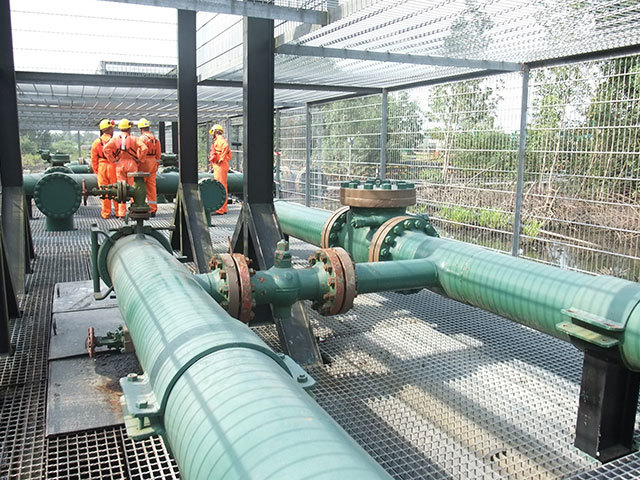
Drag your attention away from the Middle East for a moment. While policymakers have been focused on Saudi Arabia’s oil market machinations, what really matters right now is happening 3,000 miles away in the Niger River delta.
The country that was, until recently, Africa’s biggest crude producer is slipping back into chaos. A wave of attacks and accidents have hit infrastructure, taking Nigeria’s output down to 20-year lows.
Oil prices are responding, rising to their highest in more than six months. Part of this is explained by the International Energy Agency lifting demand estimates this week. But taking both things together, it’s easy to doubt whether current oil surpluses are sustainable.
With no solution in sight to the problems that beset the delta’s creeks and mangrove swamps, production from onshore and shallow-water oil fields looks vulnerable. If the latest group of freedom fighters seeks to outdo its predecessors, then deepwater facilities may be at risk too.
The Niger Delta Avengers have certainly been busy, forcing Shell’s Forcados terminal to shut in about 250,000 barrels of daily exports; and breaching an offshore Chevron facility in the 160,000 barrels per day Escravos system. In April, ENI had to declare force majeure — letting it stop shipments without breaching contracts — on exports of its Brass River grade after a pipeline fire.
It’s hard to see any long-term let-up given Nigeria’s record on fixing this problem. The previous wave of discontent, which hit a peak in 2009, only came to an end when President Yar’Adua offered amnesty, training programs and monthly cash payments to nearly 30,000 militants, at a yearly cost of about $500 million. Some leaders of the Movement for the Emancipation of the Niger Delta (MEND), the militant group, got lucrative security contracts.
But the failure to properly address local grievances means it was only a matter of time before another wave of angry young men took up the fight for a better deal for southern Nigeria. The crisis has been hastened by new president Muhammadu Buhari’s termination of the ex-militants’ security contracts and his seeking the arrest of former MEND leaders.
The Avengers now say they want independence for the Niger River delta.
And it’s not as if Nigeria’s oil woes are limited to the militants. Exxon had to declare force majeure on Qua Iboe exports after a drilling platform ran aground and ruptured a pipeline, while Shell did similar with Bonny Light exports after a leak from a pipeline feeding the terminal.
In its latest report, the IEA assessed the world’s need for OPEC crude this quarter at 31.9 million barrels a day, with Nigeria contributing 1.62 million to the group’s 32.76 million output in April.
Petromatrix, an oil research group, believes Nigerian production may now be little more than 1 million barrels per day. It won’t take much more disruption to tip the global oil balance from surplus to deficit.